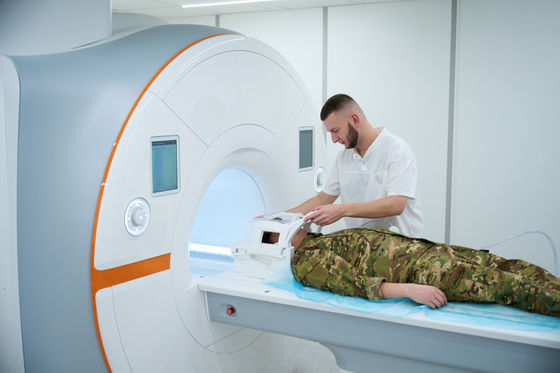Research reveals brain circuits related to 'political intensity'

While being interested in politics is healthy in itself, some people who have been diagnosed with mental or brain disorders may develop excessive interest in politics that leads to problematic political activities, such as violent protests or aggressive behavior toward different political opinions. Research on veterans with brain damage has revealed the existence of brain circuits related to the strength of political involvement, which was previously little understood.
Effects of focal brain damage on political behavior across different political ideologies | Brain | Oxford Academic
Study identifies brain areas that influence p | EurekAlert!
https://www.eurekalert.org/news-releases/1079230
Study uncovers a brain circuit linked to the intensity of political behavior
https://phys.org/news/2025-04-uncovers-brain-circuit-linked-intensity.html
In a study published in the peer-reviewed journal Brain on March 21, 2025, a research team led by Shan H. Siddiqui of the Harvard Medical School's Brigham and Women's Hospital announced that they had found brain circuits that were clearly associated with the strength of political engagement, regardless of political ideology or party affiliation.
The study involved 124 Vietnam War veterans who had suffered brain damage from 'penetrating trauma' to the head, and a control group of 35 veterans who had served in combat but had not suffered any injuries that led to brain damage.
Using a new neuroimaging technique called 'lesion network mapping,' which identifies the brain circuits that connect to specific lesions, the team created a map of the participants' brain lesions.

The participants were also asked to complete a questionnaire about their political involvement before their brain injury, and about their political involvement 40 to 45 years after their injury. The survey assessed the intensity of their political involvement, including their level of interest in politics, how often they followed political news, and how often they discussed politics with others.
Analyzing the data, the researchers found that people with lesions
These results remained consistent even when taking into account factors such as age, education, political affiliation, personality traits, and other neuropsychiatric symptoms.
'While we didn't find brain networks specifically linked to political ideology, such as liberal or conservative, we were able to identify brain circuits that influence the intensity of political participation, regardless of political stance,' said study co-author Jordan Grafman of Northwestern University's Feinberg School of Medicine.

The researchers hope that understanding the relationship between political interest and brain activity may lead to the development of effective interventions for patients who engage in aggressive or problematic political activity.
'As a neuropsychiatrist, I don't often ask my patients about their political behavior, but this can be an important change in neuropsychiatric disorders,' said Siddiqui. 'If we can understand the brain functions that regulate political behavior, we may be able to find ways to increase or decrease it in patients.'
Related Posts:
in Science, Posted by log1l_ks







